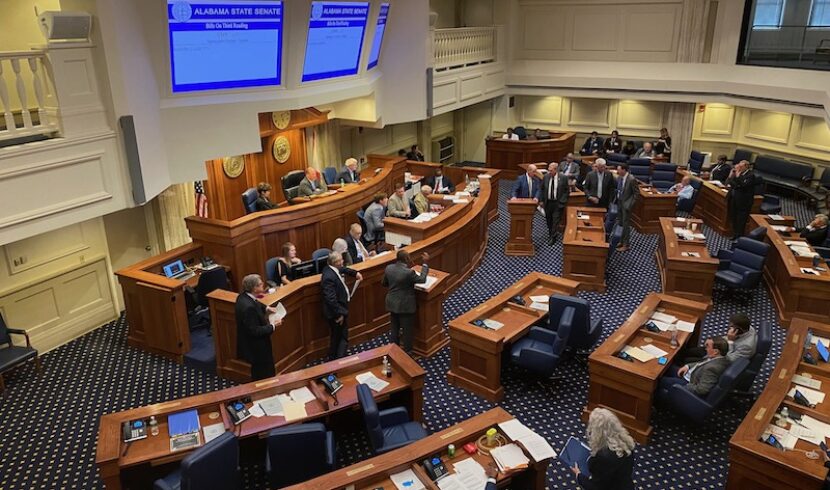By HEATHER GANN and MARY SELL, Alabama Daily News
MONTGOMERY, Ala. – Alabama municipalities in 2023 will have to start reporting to the state information about the amount of money they collect from court fees and fines and how that revenue is spent, according to legislation approved this month.
Separately, no more than 10% of a city’s general operation budget can come from traffic ticket fines and penalties.
Senate Bill 203 by Sen. Arthur Orr, R-Decatur, and Senate Bill 282 by Sen. Garlan Gudger, R-Cullman, are awaiting Gov. Kay Ivey’s signature.
“I am pleased with the transparency that the bill offers, which would presumably address a future Brookside scenario,” Orr told Alabama Daily News on Monday about SB203.
As originally written, Orr’s bill would have integrated municipal court systems with the state court and created a searchable database of cities’ fine revenue, but that section was struck. Cities will have to report their information, including the total court cases in a fiscal year and revenue collected by a municipal court and where the revenue is allocated, each year to the state Administrative Office of Courts. It will then be posted online for the public. Getting the information was his primary goal, Orr said.
“The integration of our municipal courts into the (state) system is a worthwhile goal, but that will take some time,” he said.
Kayla Bass, director of external affairs for the Alabama League of Municipalities, said the group appreciated Orr and Reps. Prince Chestnut, D-Selma, and David Faulkner, R-Mountain Brook, for working with it “to ensure the legislation that was delivered to Gov. Ivey provided for accountability and transparency while not creating undue financial burden on municipal courts.”
Orr began working on the reporting issue last year, before Brookside, Alabama garnered national attention because its police force in 2020 generated nearly half of the municipality’s revenue through fines and forfeitures.
Orr in previous years has worked on bills reining in police forces’ use of civil asset forfeiture, when someone’s property is taken, and sometimes not returned, even if they’re not convicted of a crime.
“I saw in the civil asset forfeiture situation how there were other communities who looked like they were abusing the system based on the number of forfeitures going on, the number of arrests and fines,” Orr said. “That’s why we wanted to shine the light on what is going on in some areas of the state due to the excessive fees and fines we noticed.”
Senate Bill 282 provides that only 10% of a municipality’s budget may come from traffic fines and penalties and any revenue exceeding this amount will go into either Alabama’s Crime Victims’ Compensation Fund or the Fair Trial Tax Fund.
“The intent of this bill is to make sure the bad actors of certain municipalities are being held accountable,” Gudger said Monday. “We need to put attention on the positive things in our communities like small businesses and work on earning revenue from that.”
Gudger said in researching his bill, he found many cities that receive about 8.5% of their total revenue from traffic fines, but some received more.
“I have a lot of trouble with the idea of a large percentage of traffic fines and fees going toward (a municipality’s) revenue,” said Leah Nelson, research director for the Appleseed Center for Law and Justice. “That’s betting on crime continuing which is a bet against public safety.”
Bass said throughout the legislative session, the league reached out to its membership, particularly those in high-traffic areas, to determine what impact this could have on municipalities.
“We do not anticipate this legislation hindering a city or town’s law enforcement efforts,” she said.
Editor’s note: This story was updated to correct the year in which municipalities will have to begin reporting court fee information.

